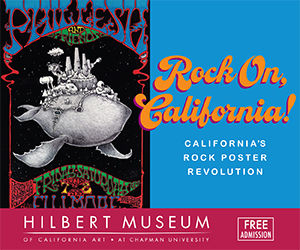Matthew Halls Leads Pacific Symphony in Challenging Vaughan Williams
- Timothy Mangan

- Jan 12, 2024
- 4 min read
REVIEW: The British conductor makes a strong case for the composer’s neglected Sixth Symphony in an impressive tryout for the orchestra.

The fourth candidate (out of eight this season) vying for Carl St.Clair’s music directorship of the Pacific Symphony arrived Thursday night in Segerstrom Concert Hall.
He’s a young Britisher named Matthew Halls, Oxford educated, a keyboardist, widely experienced in the world of early music but also a guest conductor of major modern orchestras in Europe and America and in his first season as chief conductor of Finland’s distinguished Tampere Philharmonic.
As calling cards, he brought music from his home country and his current musical home, important pieces by Sibelius and Vaughan Williams. Both works were being performed for the first time by the Pacific Symphony, which is in its 45th year.
Meanwhile, the marketers-that-be dubbed the concert “Tchaikovsky’s Violin Concerto” (last performed by the orchestra less than two years ago, and dozens of times before that) because that piece was presumably thought to be the major selling point here. Taiwanese violinist Paul Huang was the soloist.
Halls proved a compelling podium presence. He works without a baton but unlike, say, Boulez, who was said to resemble a traffic cop, the absence of a baton seems to free him up. He moves athletically and emphatically, karate chopping, jabbing, pushing, punctuating. In the repertoire performed here, these movements resulted in incisive phrasings and confident expression and high energy levels.
Matthew Halls conducts without a baton, using his hands to expressively lead the orchestra. Photo courtesy Pacific Symphony/ Doug Gifford
He opened with Sibelius’ En Saga, a wonderfully moody, propulsive and primitivistic tone poem. Coaxing vibrant colors and clear textures, enforcing judicious balances, Halls made sure we heard the remarkable and unusual orchestration of the work, producing sounds I’d never heard this orchestra make. He also kept his hand firmly on the wheel, guiding these players through the many rhythmical thickets. At times these were a little loose, ensemble-wise, but they never lacked for strong forward motion. A very nice opener.
After intermission came Vaughan Williams’ Symphony No. 6, but first the obligatory (here) conductor talk from the podium. Halls immediately apologized to those of us who don’t like hearing conductor’s talk (appreciated) and then gave a quick rundown of the difficult Vaughan Williams ahead, a rundown which seemed to hit its mark, given the appreciative applause at the end of the symphony.
The Sixth is indeed no easy piece, having very little of the pastoralism and folk song often associated with the composer. This is a wartime work (WWII) and hard as nails, gritty, dissonant, driven and dark. Commentators read all sorts of meaning into it, including the aftermath of a nuclear holocaust for the bleak finale, which the composer bristled at. But it is clearly music of its time, powerfully wrought and felt. It should be performed as often as the wartime symphonies of Prokofiev, Shostakovich and others.
Halls and the orchestra laid into it enthusiastically, determinedly. The conductor kept the cacophony focused, the mayhem sculpted and the cataclysms pointed. Again, he uncovered many unusual sounds in this orchestration, especially in the eerie contrapuntal finale, played at pianissimo, vast and lonely in effect. The orchestra played very well for Halls and appeared invigorated by this challenging music.

In between, the Tchaikovsky Violin Concerto was unfurled once again. So far this season, the guest conductors have brought some lesser performed (and therefore welcome) repertoire. In each case, however, the concertos, presumably not their choice, have been ultra-regular, and this will continue for the rest of the season as well.
The Tchaikovsky is a marvelous concerto, of course; it’s just overexposed. When I hear someone like Huang play it with his dulcet tones and gooey portamento and luscious vibrato on his 1742 “ex-Wieniawski” Guarneri del Gesu violin, my first impulse is to tune the performance out because I know it’s in good hands and I know where it’s going. Truth be told, one can’t really tell if Huang merely hit the replay button for his performance or was really feeling it. Does it matter?
But he did play the dickens out of it. The orchestra accompanied him with finesse and fervency, too, and I caught Halls having so much fun that he tried to upstage his soloist a couple times.
As previously mentioned, this season’s guest conductors are all bringing their A games and A repertoire to these tryouts. Ultimately, the concerts themselves may have little bearing on the final decision as to who the next music director of the Pacific Symphony will be. Behind-the-scenes happenings, contract negotiations, rehearsals, personal characteristics and other factors will matter as much or more than the concerts.
In the meantime, we’re hearing some good music and good performances, and the orchestra appears to be fired up.
Tchaikovsky's Violin Concerto
ARTISTS
Matthew Halls, guest conductor
Paul Huang, violin
Pacific Symphony
PROGRAM
Sibelius: En Saga
Tchaikovsky: Violin Concerto
Vaughan Williams: Symphony No. 6
When: 8 p.m. Jan. - Jan. 13
Where: Renée and Henry Segerstrom Concert Hall, 600 Town Center Dr, Costa Mesa
Cost: Remaining seats available between $99 - $225
Contact: pacificsymphony.org
Classical music coverage at Culture OC is supported in part by a grant from the Rubin Institute for Music Criticism. Culture OC makes all editorial decisions.
























